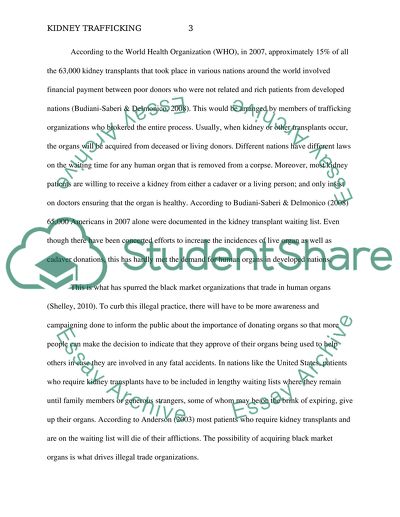Cite this document
(“Kidney trafficking Essay Example | Topics and Well Written Essays - 2000 words”, n.d.)
Retrieved from https://studentshare.org/nursing/1636259-kidney-trafficking
Retrieved from https://studentshare.org/nursing/1636259-kidney-trafficking
(Kidney Trafficking Essay Example | Topics and Well Written Essays - 2000 Words)
https://studentshare.org/nursing/1636259-kidney-trafficking.
https://studentshare.org/nursing/1636259-kidney-trafficking.
“Kidney Trafficking Essay Example | Topics and Well Written Essays - 2000 Words”, n.d. https://studentshare.org/nursing/1636259-kidney-trafficking.


